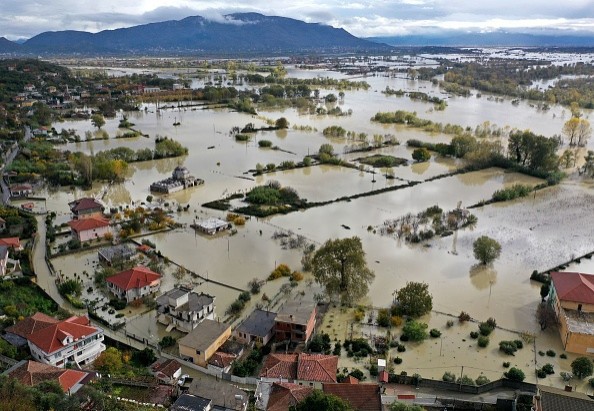According to news reports, Albania, Montenegro, and Serbia residents suffered from heavy rain and severe flooding, causing immediate evacuations and six deaths.
Heavy rain was unloaded in the Balkans for a couple of days starting Friday, resulting in flooding in affected areas.
Based on the recent report, AP and AccuWeather said that over 7,500 acres of land were affected and flooded located n Tirana, while portions of Shkoder and Lezhe suffered from the heavy rain.

The impact of severe flooding and heavy rain claimed six lives in Albania and southern Serbia.
AccuWeather reported that the army assisted in evacuating over 600 homes that were affected.
Local authorities deployed army troops to help with the evacuations and rescue operations. The deployment also helped to provide food assistance and safe drinking water.
The report also added the brunt of the storm impacted many farmers. Their crops were flooded and damaged.
According to reports, they were hoping for assistance from Albania.
What to do during heavy rain and flooding
Flood waters could cause a life-threatening situation, especially if heavy rain becomes unabated.
Heavy rain could lead to a rapid water rise in coastal areas and communities, resulting in small to disastrous flooding. Being prepared and having a disaster emergency plan would help your family prevent deaths and injuries.
Part of the responsibility is to help you prepare during and after the storm.
Know the weather news.
Be mindful of the tropical warnings or watches in your communities.
Ultimately, be aware of the announcements from your local state officials and weather stations. As emphasized by weather stations, staying updated with the weather news would help you and your family members prepare for the brunt of the storm or hurricanes.
If you are near the coast, always monitor the seawater.
Also Read : Heavy Rains and Mountain Snow to Unload in Northwest; Seattle Could Expect Relief from Dry weather
Be ready with an emergency bag and kit.
Disaster trainers always recommend preparing a ready-to-go emergency bag or kit. It should contain your basic food supplies, medicines, primary documents, flashlight, fully charged mobile phones, and power back.
Check your house.
Because you know the impact and intensity of a storm, it is best to look into your home to see if it can withstand the storm. Start repairing your property that could be most affected or worsened during the storm's onslaught.
After the storm, be careful with the damaged electrical wiring or outlets. Coordinate with a professional electrician to check.
Be careful with downed power lines
As you return home, be wary of downed power and communication lines. It is best to keep away from the damaged power lines.
Because power lines cause power outages or blackouts, be mindful of using generators.
Misusing the generator could pose health dangers to you and your family. Read the recommended manual in using away from your house.
Be ready to evacuate
When the storm unloads heavy rain, flood risk is high. Prepare to evacuate to the nearest shelters.
© 2025 NatureWorldNews.com All rights reserved. Do not reproduce without permission.





